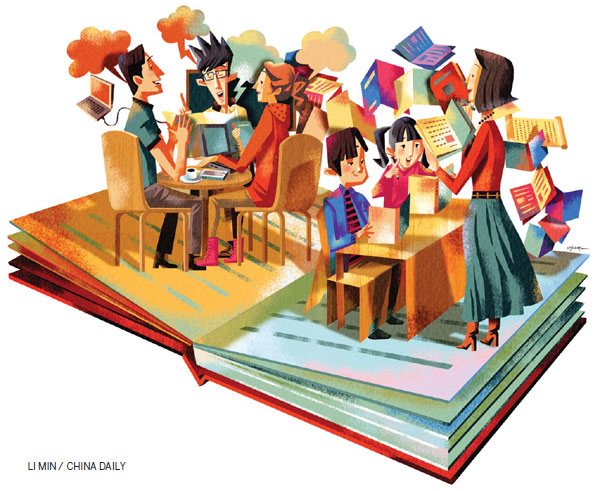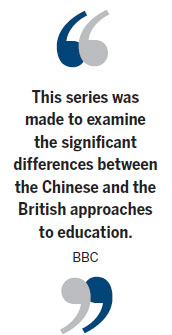School for thought
Updated: 2015-08-28 08:28
By Zhang Zhouxiang and Zhang Chunyan(China Daily Europe)
|
|||||||||||
The program received high audience numbers. The first episode was watched by 1.8 million viewers, 8.6 percent of that night's total UK viewing audience.
It became a major topic on social media for over three weeks in both China and Britain.
Sam Bagnall, executive producer of the BBC documentary, says the program exceeded the producers' expectations as it triggered fierce debate on the different education systems among media and netizens.
According to the BBC: "This series was made to examine the significant differences between the Chinese and the British approaches to education. ... For several years some of the East Asian countries have beaten the UK on core subjects in international league tables, and we wanted to explore if their approach could be transferred to the UK classroom."
Discipline and hard work were the two main differences highlighted in the series.
According to a Twitter user: "British education has gone soft. Teachers are abused and students have no discipline. ... The public see it but the politicians don't." That comment received 5,693 "likes".
"I believe they (Chinese teachers) are right. The children are the products of three or four generations of people who have been supported by the welfare state in one form or another," another user says, receiving 3,116 "likes".
Some British people say the "Chinese school" doubled the time spent in class for only a 10-percent increase in results, emphasizing the importance of happiness and independent thinking to students.
However, Chu Yin, a Chinese citizen who is familiar with Chinese and Western education systems, writes in an article in Yanzhao Metropolis Daily, published in Hebei province, that the Western basic education system completes the process of social stratification unconsciously and gradually through the relaxed study progress.
Today's Top News
Xi's trip to herald 'golden decade' for relations
Wanda's chairman Wang again becomes richest Chinese
Ex-NBA star Odom reported critical, Kardashian at his side
Country house to add English tradition to Xi, Cameron meeting
Most Chinese cities failing air quality standards: Report
Xi to initiate 'golden era' in China-UK ties
China's September inflation cooler than expected
Sensible strategic move by Russia to give Assad support
Hot Topics
Lunar probe , China growth forecasts, Emission rules get tougher, China seen through 'colored lens', International board,
Editor's Picks

|

|

|

|

|

|








